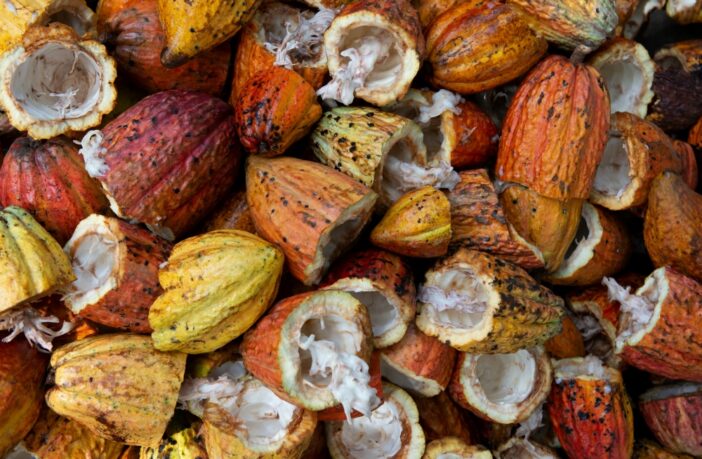The Open University (OU) is proud to be part of the 5th Edition of the Chocolate Scorecard that grades chocolate companies on their sustainability and ethics.
The annual initiative is coordinated by Be Slavery Free in collaboration with an international team of non-profit organisations and academics, including Dr. Cristiana Bernardi, Senior Lecturer in Accounting and Financial Management at the OU.
Now in its 5th year, the independent report grades chocolate companies on key sustainability issues and highlights the disconnect between these companies and the cocoa farmers who grow the essential ingredients.
Published just in time for Easter, the 5th Edition of the Chocolate Scorecard evaluates 63 global chocolate traders, manufacturers, brands, and retailers against six key markers:
- Traceability and Transparency
- Living Income:
- Child and Forced Labour
- Climate Chance and Deforestation
- Agroforestry
- Agro-Chemical Use
A traffic light system is used to rank retailers and manufacturers for their overall progress towards these categories. This information is presented in an interactive table that empowers consumers to make informed choices as they stock up for Easter and incentivises companies to improve their sustainability practices.
The companies selected included all the largest cocoa traders and chocolate manufacturers in the industry. Together, these companies purchase over 90% of the world’s cocoa.
The 2024 scorecard shows how consumer awareness and demand for ‘better’ chocolate is driving positive change in the industry. This year, three Good Egg awards were given to Original Beans, Beyond Good, and Ritter Sport. Tony’s Chocolonely was once again given an Achievement Award for leading the industry in policy and practice.
However, the project also reveals how certain aspects, such as farmer poverty, remain unchanged despite being a longstanding issue. Speaking on the changes taking place in the chocolate industry, Dr. Cristiana Bernardi said:
“The chocolate sector is experiencing profound transformations across multiple aspects, mirroring changes in consumer tastes, sustainability priorities, ethical norms, and technological progress. Nonetheless, still numerous are the pressing sustainability issues facing the chocolate industry.
The Chocolate Scorecard assesses companies based on their product traceability – a challenge for some, as they cannot even trace the origins of all their products. For change to occur, it is imperative that companies understand their current practices and hold themselves accountable. It is only upon achieving this awareness that sustainability challenges such as child labour, living income, traceability and transparency, agroforestry, deforestation and climate and pesticides can be tackled.
Although the scorecard reveals that many companies are underperforming, it is our hope that these scores will prompt reflection. Additionally, we hope that consumers and similar stakeholders will reference this information in their decision-making, fostering change throughout the industry.”
Access the full interactive Chocolate Scorecard here: Home | Chocolate Scorecard



